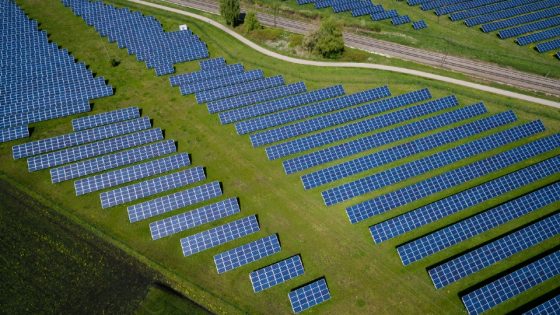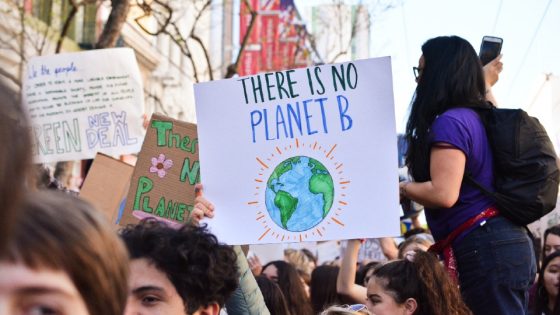The World Economic Forum has released a series of four reports on how cities can take a systems approach to finance and deliver urban transformation projects in the wake of COVID, widening inequality and global conflicts.
Each report – urban inclusion, city financing models, climate preparedness, and technology adoption – guides city leaders with case studies and toolkits to successfully manage digital projects and new financing models to achieve more climate-ready and equitable cities.
The Global Future Council on Cities of Tomorrow (GFC) – comprised of forty-five sector experts from around the world collaborated throughout the pandemic to help struggling cities to build more future-ready communities for all citizens.
“Cities are on the frontlines of climate mitigation and adaptation. They are also under pressure to improve residents’ standard of living and increase community cohesion while progressing towards sustainable development,” said Alice Charles, Lead, Urban Transformation, World Economic Forum. “To meet these high expectations, cities need to develop strategies using a systems perspective to deliver net-zero carbon and climate-resilient urban infrastructure. The Global Future Council on Cities has done an extraordinary job with these reports to provide cities with the tools they need right now.”
Implementing a systems approach across urban sectors:
- Rethinking City Revenue and Finance: A systems-approach to financing urban transformation depends on access to a diverse range of revenue sources to advance both traditional and green infrastructure, which also must include investment in operations and maintenance. The report is informed by a survey of 10 city administrations on potential revenue streams, planned initiatives and the policy interventions required to ensure that projects are financially viable.
- For example, with support from UNHabitat and UNDP, Somaliland implemented a robust property tax and collection system to pay for infrastructure improvements, which increased the capital city’s property tax revenue from $384,115 in 2008 to close to $1.5 million in 2018. This represents up to one third of the city’s total revenue.
- Using Digital Technology for a Green and Just Recovery in Cities: To move towards a systems approach, this report recommends that city leaders should start by asking, “What are the most pressing unmet needs and challenges in cities” that technology can improve, rather than, “What can we do with digital technologies?”. A 10-step action plan and 31 case studies showcase best practices and innovative digital solutions that have already been applied in 28 cities worldwide.
- For example, ModeliScale is an energy network digital twin that allows simulation of the future energy grid. The model covers multiple inputs and outputs, including buildings, solar panels, electric vehicles and storage. This realistic view of a city’s energy needs enables better planning for investment, operations and maintenance.
- Accelerating Urban Inclusion for a Just Recovery: Equity and inclusion are at the heart of a systems approach to every aspect of recovery and transformation. The report provides a 10-step action plan for urban inclusion to enable city leaders to create more inclusive spatial, digital, social/institutional and economic realms.
- For example, São Paulo, Brazil, has successfully introduced an instrument called “Outorga Onerosa”, which offers property owners a density bonus to increase the maximum allowable development on a site in exchange for either direct funds or in-kind support for specified public policy goals.
- Delivering Climate-Resilient Cities Using a Systems Approach: This report finds that cities need to engage with relevant stakeholders from government, business, academia and civil society that interact with the urban value chain. The report provides a five-step action plan to guide cities in adopting a systems approach to climate-resilient urban infrastructure delivery.
- For example, Mexico City is leading the way in Latin America by financing green infrastructure with social impact bonds. The success of these bonds is based in part on certification by internationally independent experts who also periodically collect and publish data on performance indicators.
Together the four reports provide a roadmap for cities to become more equitable and resilient to the shocks and stressed caused by global conflict, climate change, and rapidly changing technologies.
As the GFC co-chairs Carlo Ratti and Maimunah Mohd Sharif point out, preparedness on one front often has unexpected benefits elsewhere. In the Forward to the climate preparedness report, the co-chairs write, “Systems approaches are complex – more connections lead to more complications – yet the successes of cities such as Melbourne, Fukuoka and Helsinki demonstrate that extraordinary rewards can be attained, especially if siloed thinking is dismantled. The solution to a transport query might lie in housing; the unanticipated positive impact of a new park might be felt in a nearby water treatment plant. By pursuing a systems approach, we can bring fresh ideas to fields as diverse as housing, energy, mobility, public and green spaces, water treatment, stormwater management, waste management and many others.”
The Global Future Councils serve as a brain trust for leaders from government, business, and civil society, and support the Forum’s mission by bringing together experts bound by a shared mission to discuss the most critical issues, generate insights and analysis, and collaborate in shaping agendas.






